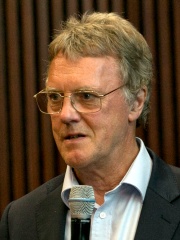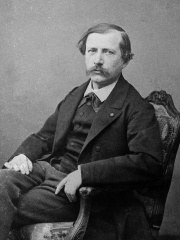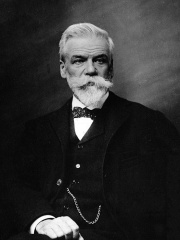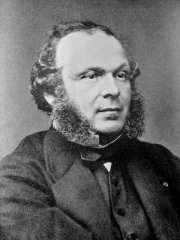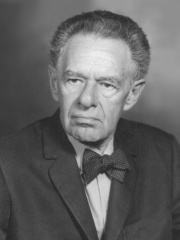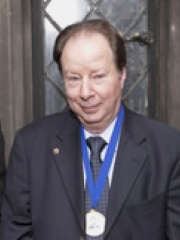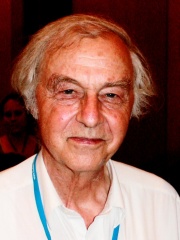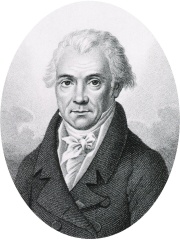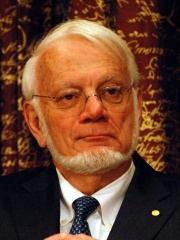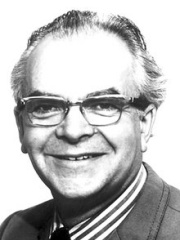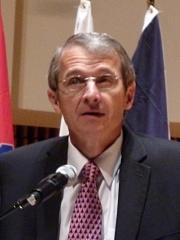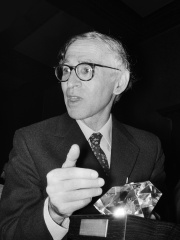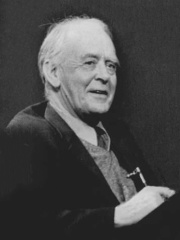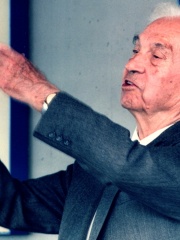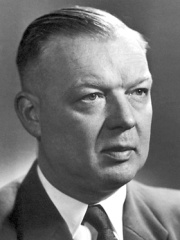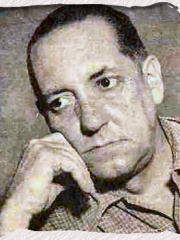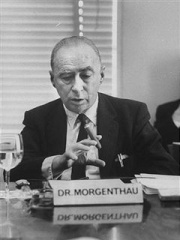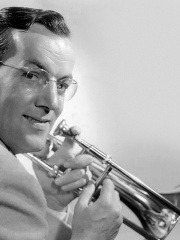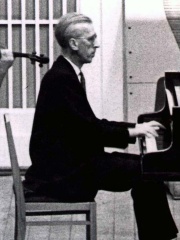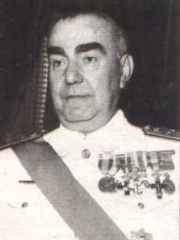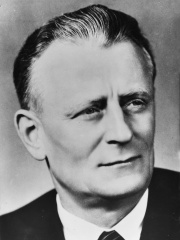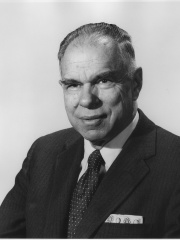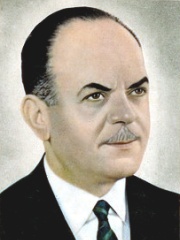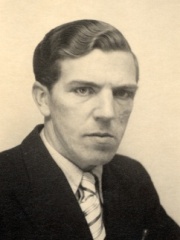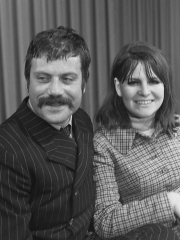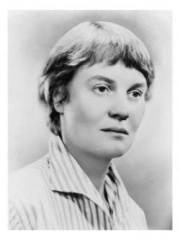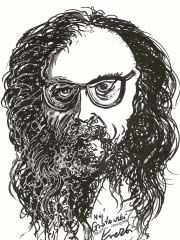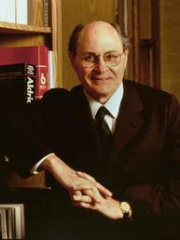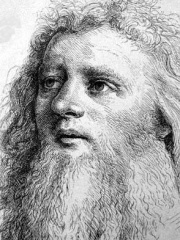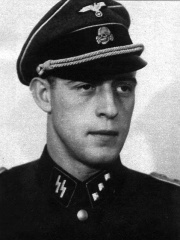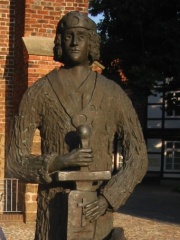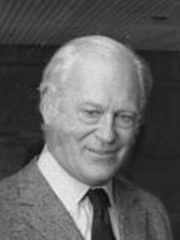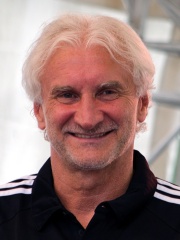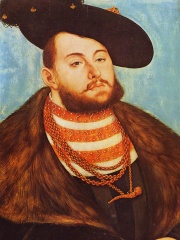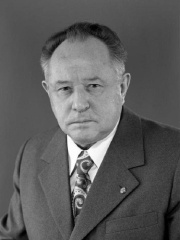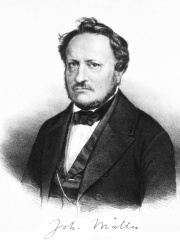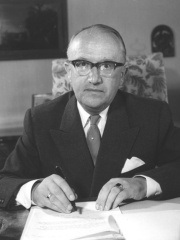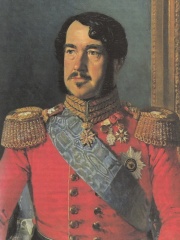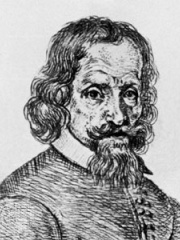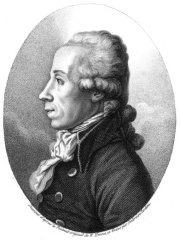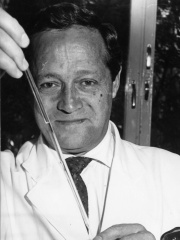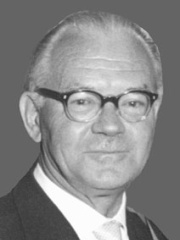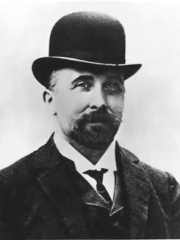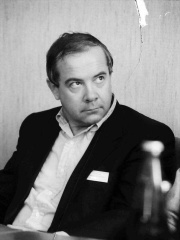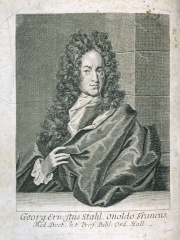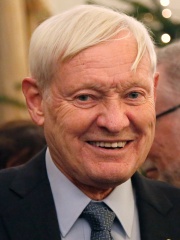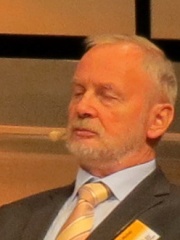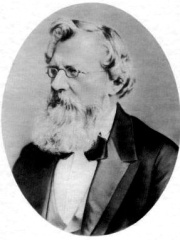CHEMIST
Gerhard Herzberg
1904 - 1999
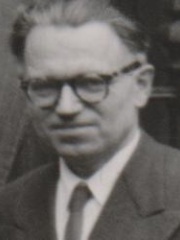
 Gerhard Herzberg
Gerhard Herzberg
Gerhard Heinrich Friedrich Otto Julius Herzberg, (German: [ˈɡeːɐ̯.haʁt ˈhɛʁt͡sˌbɛʁk] ; December 25, 1904 – March 3, 1999) was a German-Canadian pioneering physicist and physical chemist, who won the Nobel Prize for Chemistry in 1971, "for his contributions to the knowledge of electronic structure and geometry of molecules, particularly free radicals". Herzberg's main work concerned atomic and molecular spectroscopy. He is well known for using these techniques that determine the structures of diatomic and polyatomic molecules, including free radicals which are difficult to investigate in any other way, and for the chemical analysis of astronomical objects. Herzberg served as Chancellor of Carleton University in Ottawa, Canada from 1973 to 1980. Read more on Wikipedia
His biography is available in 54 different languages on Wikipedia. Gerhard Herzberg is the 186th most popular chemist (up from 209th in 2024), the 697th most popular biography from Germany (up from 1,113th in 2019) and the 33rd most popular German Chemist.
Herzberg was a psychologist who studied the relationship between job satisfaction and job dissatisfaction. He found that there are two factors that lead to job satisfaction and dissatisfaction. The first is the intrinsic factors, which are things like the nature of the work, one's own capabilities, and the degree of responsibility. The second is the extrinsic factors, which are things like pay, working conditions, and supervision.
Memorability Metrics
Page views of Gerhard Herzberg by language
Among CHEMISTS
Among chemists, Gerhard Herzberg ranks 186 out of 602. Before him are Peter J. Ratcliffe, Marcellin Berthelot, Ernest Solvay, Charles Adolphe Wurtz, Fritz Albert Lipmann, and Sidney Altman. After him are Robert Huber, Louis Nicolas Vauquelin, Thomas A. Steitz, Peter D. Mitchell, Richard R. Schrock, and Aaron Klug.
Most Popular Chemists in Wikipedia
Go to all RankingsPeter J. Ratcliffe
1954 - Present
HPI: 70.64
Rank: 180
Marcellin Berthelot
1827 - 1907
HPI: 70.63
Rank: 181
Ernest Solvay
1838 - 1922
HPI: 70.63
Rank: 182
Charles Adolphe Wurtz
1817 - 1884
HPI: 70.58
Rank: 183
Fritz Albert Lipmann
1899 - 1986
HPI: 70.57
Rank: 184
Sidney Altman
1939 - 2022
HPI: 70.50
Rank: 185
Gerhard Herzberg
1904 - 1999
HPI: 70.50
Rank: 186
Robert Huber
1937 - Present
HPI: 70.48
Rank: 187
Louis Nicolas Vauquelin
1763 - 1829
HPI: 70.39
Rank: 188
Thomas A. Steitz
1940 - 2018
HPI: 70.39
Rank: 189
Peter D. Mitchell
1920 - 1992
HPI: 70.34
Rank: 190
Richard R. Schrock
1945 - Present
HPI: 70.33
Rank: 191
Aaron Klug
1926 - 2018
HPI: 70.28
Rank: 192
Contemporaries
Among people born in 1904, Gerhard Herzberg ranks 31. Before him are John Hicks, Joan Crawford, Ernst Mayr, Hans Albert Einstein, Werner Forssmann, and Alejo Carpentier. After him are Hans Morgenthau, Witold Gombrowicz, Glenn Miller, Dmitry Kabalevsky, Luis Carrero Blanco, and Antonín Novotný. Among people deceased in 1999, Gerhard Herzberg ranks 27. Before him are Glenn T. Seaborg, Wilt Chamberlain, Georgios Papadopoulos, Joe DiMaggio, Trygve Haavelmo, and Oliver Reed. After him are Julius Nyerere, Iris Murdoch, Jerzy Grotowski, Daniel Nathans, Akio Morita, and Mary Ainsworth.
Others Born in 1904
Go to all RankingsJohn Hicks
ECONOMIST
1904 - 1989
HPI: 71.34
Rank: 25
Joan Crawford
ACTOR
1904 - 1977
HPI: 71.21
Rank: 26
Ernst Mayr
BIOLOGIST
1904 - 2005
HPI: 71.17
Rank: 27
Hans Albert Einstein
ENGINEER
1904 - 1973
HPI: 70.91
Rank: 28
Werner Forssmann
PHYSICIAN
1904 - 1979
HPI: 70.90
Rank: 29
Alejo Carpentier
WRITER
1904 - 1980
HPI: 70.51
Rank: 30
Gerhard Herzberg
CHEMIST
1904 - 1999
HPI: 70.50
Rank: 31
Hans Morgenthau
POLITICAL SCIENTIST
1904 - 1980
HPI: 70.41
Rank: 32
Witold Gombrowicz
WRITER
1904 - 1969
HPI: 70.40
Rank: 33
Glenn Miller
MUSICIAN
1904 - 1944
HPI: 70.23
Rank: 34
Dmitry Kabalevsky
COMPOSER
1904 - 1986
HPI: 70.07
Rank: 35
Luis Carrero Blanco
EXTREMIST
1904 - 1973
HPI: 69.83
Rank: 36
Antonín Novotný
POLITICIAN
1904 - 1975
HPI: 69.64
Rank: 37
Others Deceased in 1999
Go to all RankingsGlenn T. Seaborg
CHEMIST
1912 - 1999
HPI: 71.74
Rank: 21
Wilt Chamberlain
BASKETBALL PLAYER
1936 - 1999
HPI: 71.64
Rank: 22
Georgios Papadopoulos
POLITICIAN
1919 - 1999
HPI: 71.63
Rank: 23
Joe DiMaggio
BASEBALL PLAYER
1914 - 1999
HPI: 71.22
Rank: 24
Trygve Haavelmo
ECONOMIST
1911 - 1999
HPI: 70.64
Rank: 25
Oliver Reed
ACTOR
1938 - 1999
HPI: 70.52
Rank: 26
Gerhard Herzberg
CHEMIST
1904 - 1999
HPI: 70.50
Rank: 27
Julius Nyerere
POLITICIAN
1922 - 1999
HPI: 70.49
Rank: 28
Iris Murdoch
WRITER
1919 - 1999
HPI: 70.25
Rank: 29
Jerzy Grotowski
FILM DIRECTOR
1933 - 1999
HPI: 69.33
Rank: 30
Daniel Nathans
BIOLOGIST
1928 - 1999
HPI: 68.94
Rank: 31
Akio Morita
BUSINESSPERSON
1921 - 1999
HPI: 68.45
Rank: 32
Mary Ainsworth
PSYCHOLOGIST
1913 - 1999
HPI: 67.97
Rank: 33
In Germany
Among people born in Germany, Gerhard Herzberg ranks 697 out of 7,253. Before him are Hans Holbein the Elder (1465), Otto Günsche (1917), Widukind (755), George William, Elector of Brandenburg (1595), Curd Jürgens (1915), and Rudi Völler (1960). After him are John Frederick I, Elector of Saxony (1503), Erich Mielke (1907), Johannes Peter Müller (1801), Robert Huber (1937), Walter Hallstein (1901), and Prince William of Hesse-Kassel (1787).
Others born in Germany
Go to all RankingsHans Holbein the Elder
PAINTER
1465 - 1524
HPI: 70.57
Rank: 691
Otto Günsche
MILITARY PERSONNEL
1917 - 2003
HPI: 70.56
Rank: 692
Widukind
SOCIAL ACTIVIST
755 - 810
HPI: 70.51
Rank: 693
George William, Elector of Brandenburg
POLITICIAN
1595 - 1640
HPI: 70.51
Rank: 694
Curd Jürgens
ACTOR
1915 - 1982
HPI: 70.51
Rank: 695
Rudi Völler
SOCCER PLAYER
1960 - Present
HPI: 70.51
Rank: 696
Gerhard Herzberg
CHEMIST
1904 - 1999
HPI: 70.50
Rank: 697
John Frederick I, Elector of Saxony
POLITICIAN
1503 - 1554
HPI: 70.49
Rank: 698
Erich Mielke
POLITICIAN
1907 - 2000
HPI: 70.49
Rank: 699
Johannes Peter Müller
PHYSICIAN
1801 - 1858
HPI: 70.48
Rank: 700
Robert Huber
CHEMIST
1937 - Present
HPI: 70.48
Rank: 701
Walter Hallstein
POLITICIAN
1901 - 1982
HPI: 70.48
Rank: 702
Prince William of Hesse-Kassel
POLITICIAN
1787 - 1867
HPI: 70.45
Rank: 703
Among CHEMISTS In Germany
Among chemists born in Germany, Gerhard Herzberg ranks 33. Before him are Johann Rudolf Glauber (1604), Hermann Kolbe (1818), Martin Heinrich Klaproth (1743), Feodor Lynen (1911), Georg Wittig (1897), and Felix Hoffmann (1868). After him are Robert Huber (1937), Johann Deisenhofer (1943), Georg Ernst Stahl (1659), Joachim Frank (1940), Hartmut Michel (1948), and August Wilhelm von Hofmann (1818).
Johann Rudolf Glauber
1604 - 1670
HPI: 71.76
Rank: 27
Hermann Kolbe
1818 - 1884
HPI: 71.52
Rank: 28
Martin Heinrich Klaproth
1743 - 1817
HPI: 71.51
Rank: 29
Feodor Lynen
1911 - 1979
HPI: 71.36
Rank: 30
Georg Wittig
1897 - 1987
HPI: 71.26
Rank: 31
Felix Hoffmann
1868 - 1946
HPI: 70.66
Rank: 32
Gerhard Herzberg
1904 - 1999
HPI: 70.50
Rank: 33
Robert Huber
1937 - Present
HPI: 70.48
Rank: 34
Johann Deisenhofer
1943 - Present
HPI: 70.19
Rank: 35
Georg Ernst Stahl
1659 - 1734
HPI: 69.52
Rank: 36
Joachim Frank
1940 - Present
HPI: 68.69
Rank: 37
Hartmut Michel
1948 - Present
HPI: 68.68
Rank: 38
August Wilhelm von Hofmann
1818 - 1892
HPI: 68.38
Rank: 39
